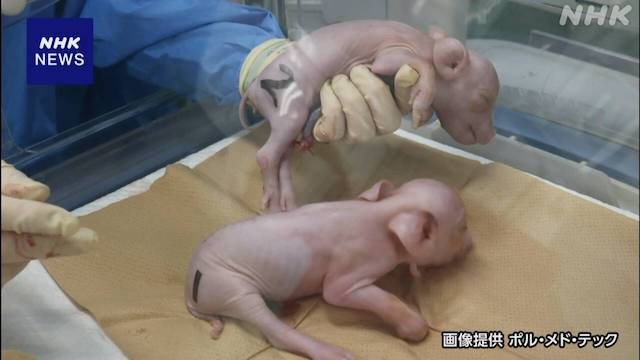TOKYO, Feb 13 (News On Japan) - A group including a venture company originating from Meiji University has succeeded in producing a special breed of pigs, developed in the United States for the purpose of organ transplantation in humans, using cloning technology.

This marks the first birth of piglets in Japan using this technique. The venture company, PorMedTech, which focuses on pig cloning technology and related research, announced the development. The pigs in question are genetically engineered miniature pigs by an American biotech firm, designed to reduce the likelihood of rejection when their organs are transplanted into humans. The group has successfully cloned these pigs from imported cells, and on the 11th, three piglets were born.
According to the group, this is the first time that pigs intended for human transplantation have been born in Japan. Research into pig-to-human organ transplantation has been gaining international attention in recent years as a means to secure a supply of organs for transplants. The group plans to supply these pigs to research institutions and aims to start research on transplanting their organs into monkeys within the year.
Hiroshi Nagashima, a professor at Meiji University and CEO of the venture company, said, "I am relieved that the piglets were born safely, but this is just the beginning. With this development, I expect discussions on clinical applications to progress in Japan. We want to advance our research with a focus on safety and also deepen the discussion on ethical issues."
Source: NHK















